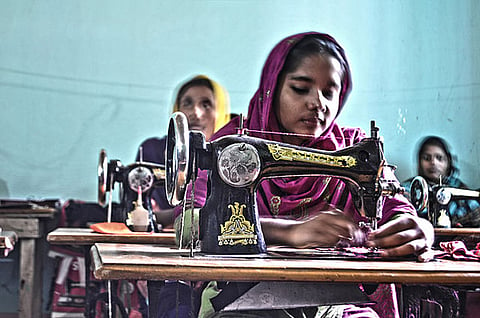A matter of class
(This article is a part of the web-exclusive series from our latest issue 'Labour and its Discontents'. More from the print quarterly here.)
Had workers from the various factories in the Rana Plaza complex been unionised they could have refused to take to the factory floor on the fateful morning of 24 April 2013. Why were they not? And why have unions been such a failure in Bangladesh, which is the second largest ready-made garment exporting country in the world?
In the aftermath of the disaster, I met many workers, some of whom had been injured and others who worked in that peri-urban 'house of cards.' Ashraful Islam, 30, was one such young man. Slender and withdrawn, his injuries are more psychological than physical. Scarred by the hours he spent entombed, he barely spoke and could no longer taste or smell; one of the more unexpected affects that the Rana Plaza collapse had on many survivors and rescuers alike. The horrific odour of the wreckage resulted in involuntary memory so traumatic and morbid that the sufferer's sensations simply died.

